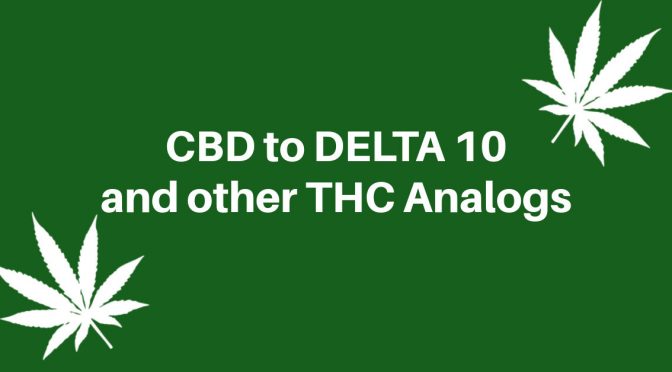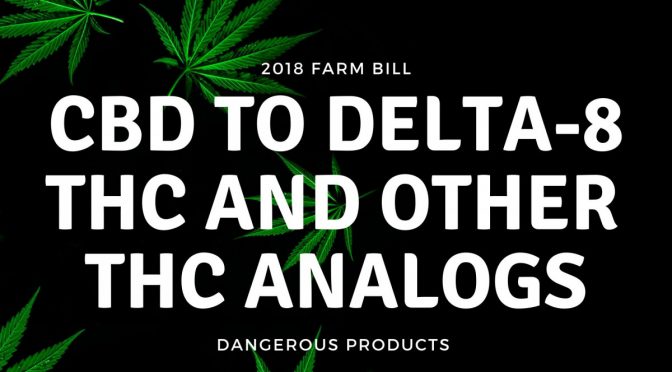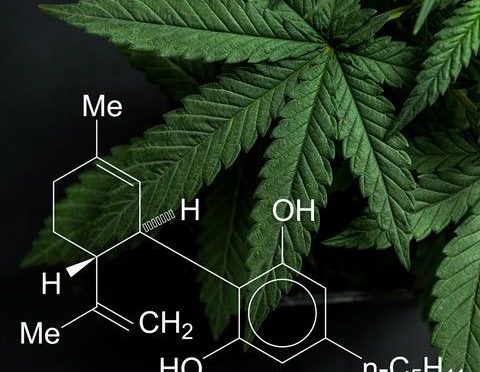The mainstream media makes CBD seem harmless, but what happens when chemists turn it into the Delta forms of THC? The problem is that CBD, which is legal and widely available, can be converted –or “isomerized” in a lab — into various THC derivatives. These derivatives become 3 times stronger through the “acetylation” process.
Because of these processes, legal CBD-based products may cause mental impairments such as psychosis, similar to Delta-9 THC.
Today, almost any person in the US can buy CBD-derived Delta-8 THC, Delta-10 THC, and acetylated THC products in local shops or online. Vape shops and gas stations advertise the Delta products, because they’ve found a means of selling THC in the states where marijuana isn’t legal. In some states where weed is legal, buying the Deltas allows consumers to get out of paying state taxes on marijuana.
These problems resulted unexpectedly from legalizing hemp in the 2018 Agriculture Bill, as explained in Part 1: The Problem of Delta-8 and other THC Analogs.
Even if they can’t be sold legally to teens, Delta-8 and other THC analogs get into the hands of our teens. Some of the youths who recently died by suicide were vaping Delta-8 THC.
The ABCs of THC chemistry
The word “cannabinoids” refers to the many naturally occurring chemical compounds in cannabis plants, specifically hemp and marijuana plants. While there are hundreds of naturally occurring cannabinoids in hemp and marijuana, the two most well-known cannabinoids are CBD from the hemp plant and THC from the marijuana plant. THC is also known as Delta-9 Tetrahydrocannabinol or Delta-9 THC.
Made by nature or in labs?
An “isomer” is a molecule that has the exact same molecular formula as another molecule. A well-known example of a molecular formula is water, or, H2O. Water’s molecular formula specifies that it contains two hydrogen atoms and one oxygen atom. Pivoting the discussion to CBD, the molecular formula for this molecule is the same as Delta-9 THC; therefore, CBD and Delta-9 THC are considered isomers of one another. What is different about these two molecules is the arrangement of the atoms, which causes the human body to respond to each one differently.
“Isomerization” is a chemical process whereby one isomer can be transformed structurally into another isomer by the use of other chemicals. After the process occurs, the resulting chemical needs to be further processed to remove any residual byproducts.
Today, legal CBD can be isomerized into various THC derivatives. These derivatives include Delta 8-THC, Delta 9-THC, and Delta-10 THC. All of these have the exact same molecular formula and are therefore isomers of one another. The arrangement of the atoms of each molecule is what differentiates one from another.
Delta-8 THC
Delta 8-THC is about one-third as potent as Delta-9 THC, but there are anecdotal reports of Delta-8 THC users becoming just as psychotic as those who use Delta-9 THC. (Read our previous article on Delta 8-THC.) Delta 10-THC is also reported to be less potent than Delta 9-THC. Delta-8 THC and Delta-10 THC are legal because they are derived from federally legal hemp. Many states have recently banned or restricted the sale of these chemicals because of the expected health risks. Similarly, the FDA recently issued a warning about the health risks of Delta-8 THC.
Delta 8-THC becomes more potent by using the same chemical process that creates heroin out of morphine. The chemical process used to convert morphine into heroin is called “acetylation”. When this process is applied to Delta 8-THC, the resulting chemical could be just as potent as Delta 9-THC. Delta 9-THC can be acetylated and made about three times more potent than its original form. We do not have data on whether acetylated THC derivatives are more addictive. Increased addictiveness and potency are hallmarks of heroin when compared to morphine. The US Army studied Acetylated Delta-9 THC and found it to be so potent that it was considered a possible chemical warfare agent that could physically incapacitate enemy troops during the Cold War.
Little information is available about the possible adverse side-effects of Delta-10 THC because it is very new to the market.
The Discovery of Delta-10 THC
Circling back to Delta 10-THC, this is where the isomerization process gets very interesting. In 1984, an Israeli scientist documented the earliest scienc-based information on the synthesis of Delta-10 THC.
Fusion Farms, a marijuana farm in California, was hit by wildfires in the summer of 2020. To suppress the fires, firefighters used fire retardants via aircraft which subsequently contaminated the marijuana crops at Fusion Farms. After the fires subsided, the farm processed the plant material that remained. During the processing, they found the end product contained Delta 10-THC, rather than the Delta 9-THC which they expected.
It is absolute madness for these unregulated, dangerous chemicals to be considered legal — simply because they’re derived from the CBD found in the hemp plant before industrial processing turns them into another form of THC.
Claiming that these forms of THC are natural is wrong. There’s nothing natural about what is currently sold as THC and has been transformed through industrial laboratory processes. The end results often affect our young people’s minds permanently. Cannabinoids are very complicated and THC details matter.
Jesse LeBlanc, a mechanical engineer with experience in the chemical industry and member of our Board of Directors, wrote this paper. Read his previous article on Delta-8 THC.
On February 1, Dr. Aaron Weiner and IASIC will present a free webinar on Delta-8, THC-0 and the future of cannabis. Register here: https://julnet.swoogo.com/iasic-seminars/1510302



